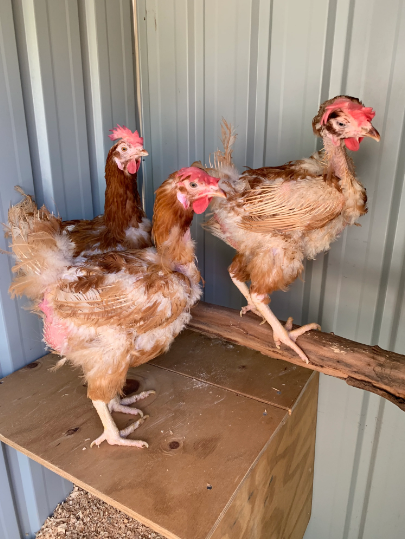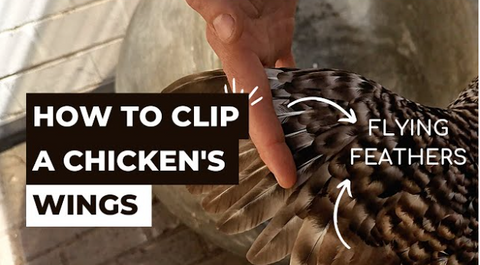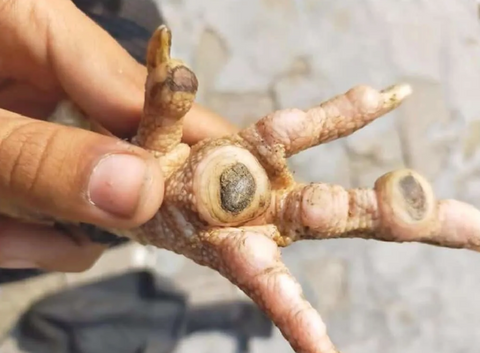If you own chickens or are a new chicken owner, you would have or are about to witness them go through molt,
If you woke up one morning in autumn to go out and feed your chickens to discover feathers everywhere and naked bottoms, do not fear!
They are just going through molt.
During this time, chickens can look a little strange and might stop laying, but it is all part of their life cycle. It also results in hens with healthy, refreshed feathers.
The Purpose of the Molt
Molting is a natural way for chickens to keep their feathers healthy. This phenomenon usually first begins when your chickens reach 18 months of age, then recurs annually in the Fall months as they start preparing for winter.

What to expect
Molting can be a stressful time for both chickens and their keepers. During a normal molting process, you can expect some of the following:
- Feather loss and regrowth
- Lower egg production
- Weight loss
- Mood changes
- Skin sores
You may be wondering what lower egg production has to do with feather loss. The reason has to do with protein.
Feathers are composed of around 85 percent protein, and during the molting process, the majority of your chicken's energy is used to replace lost feathers rather than laying eggs. As a result, a chicken in molting cannot support both feather and egg production at the same time. So, they may show a significant reduction in egg productivity, or stop laying all together.
While you may be missing your hens' farm-fresh eggs, know that it is only temporary and egg production should ramp back up as soon as your chickens feathers are regrown.

How Long Does Molting Last?
You can expect your flock to be in the molting process of losing and regrowing their feathers from 3 to 16 weeks.
The amount of time that they experience the molt varies from bird to bird. For example, feather loss can be gradual for one hen, while another may lose the majority of their feathers within the span of a few days. Factors such as age, environment, and nutrient absorption plays a role in the length of the process for each individual hen.

How to Care for your Molting Flock
1. Reducing Stress
One of the best ways to care for your flock while molting is to keep their stress levels as low as possible by keeping them safe and calm. To reduce stress and limit the risk of injury, try to refrain from handling and holding your hens as much as possible.
2. Adjusting Feed
Providing additional protein is key to caring for your hens while they molt. It is recommend to switch your flock to a feed with at least 20-25% protein for the duration of the process.
You can supplement your hens diet with protein rich treats such as:
- Raw Nuts
- Sunflower Seeds
- Mealworms
- Tuna Fish
- Peas
- Lentils
- Cooked Meat
3. Increasing Light
In addition to supplementing your flock's diet, you can also provide them with extra artificial light. Using artificial light in your coop can be used as a safe way to encourage winter egg-laying and may prevent your hens from halting egg production.





